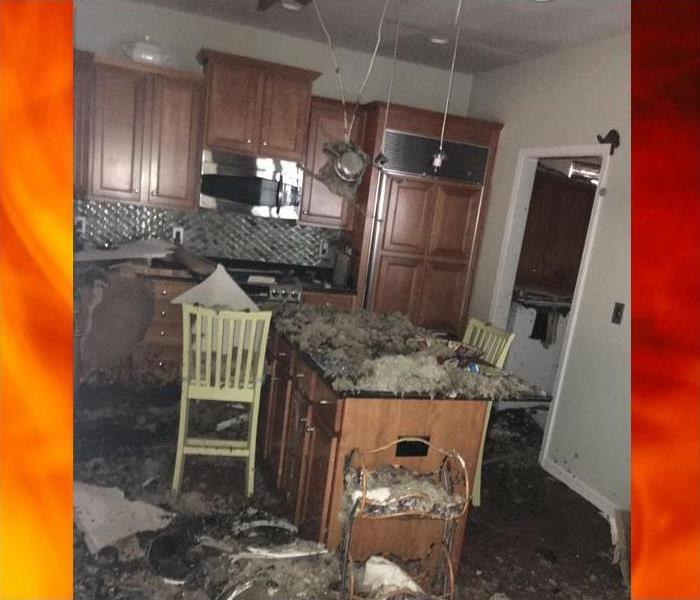Preparing For the Worst: First Steps.
8/3/2020 (Permalink)
Disaster has struck! Your worst nightmare has come true. Your refuge has been compromised. Emotion is running high. There’s so much to do - so many questions. Where do you turn? Who do you trust? What are the next steps? Hopefully, in the next few minutes we can help you sort this stuff out.
- Notify your insurance company of the loss. PLAN AHEAD: keep a copy of your policy and contact information at a safe alternate location. Set up an insurance contact in your phone in advance, just in case. In a catastrophe, emotions run high and trying to remember insurance details is an unnecessary stressor.
- Get advice from a first response company. They can quickly send out an expert who will evaluate your situation and help you protect the property from further damage. We all live busy lives, but taking time to research beforehand so you aren’t making snap decisions in a tough moment, is time well spent. Here at SERVPRO of Greater Northern Charleston, we offer programs to evaluate your home or business and put you on a preferential service list in the event of a community wide disaster.
- Hire a pre-screened construction professional. Some mitigation companies, like ours, do turn-key projects. We not only mitigate the original damage but can handle the reconstruction as well. If yours doesn’t offer this, take the time to investigate your options beforehand. The key to managing stress in a crisis is eliminating as many unknowns as possible before disaster strikes.
- Notify your mortgage company that you’ve had damage. Most companies have a “Loss Draft Department” that exists solely to process money as the insurance company issues it. Larger settlements are often escrowed by the company and distributed in increments based upon progress made by the contractor. There is usually a package of documents that has to be filled out and submitted by you and your licensed contractor to begin distribution of funds.
- Understand the limits of your policy. This is a complex process with many moving parts. On larger claims many home owners make mistakes early in the process that can cause grave financial harm to them as the situation unfolds. Beware of offers of convenience as they are often quite costly. Every expense in an insurance claim is assigned to a category within the policy. When the category is used up there’s no more money. Ask your agent to go over the various components with you and explain what protections you are buying and how they match up to real world expenses if you ever have to file a claim.
We are locally owned and have been serving the Lowcountry for 16 years, and counting! If you have any questions about how you can be prepared for a fire or flood emergency in your home or business, do not hesitate to call or contact us through our site!
We are here for you 24/7.
__________________
Resources:
- https://www.iii.org/article/settling-insurance-claims-after-a-disaster
- https://www.consumerfinance.gov/ask-cfpb/what-should-i-do-if-my-house-is-destroyed-in-a-natural-disaster-en-1521/#:~:text=There%20are%20four%20things%20to,let%20them%20know%20what%20happened.
- https://www.allstate.com/tr/insurance-basics/limit.aspx
- https://www.naic.org/documents/prod_serv_consumer_guide_home.pdf






 24/7 Emergency Service
24/7 Emergency Service
